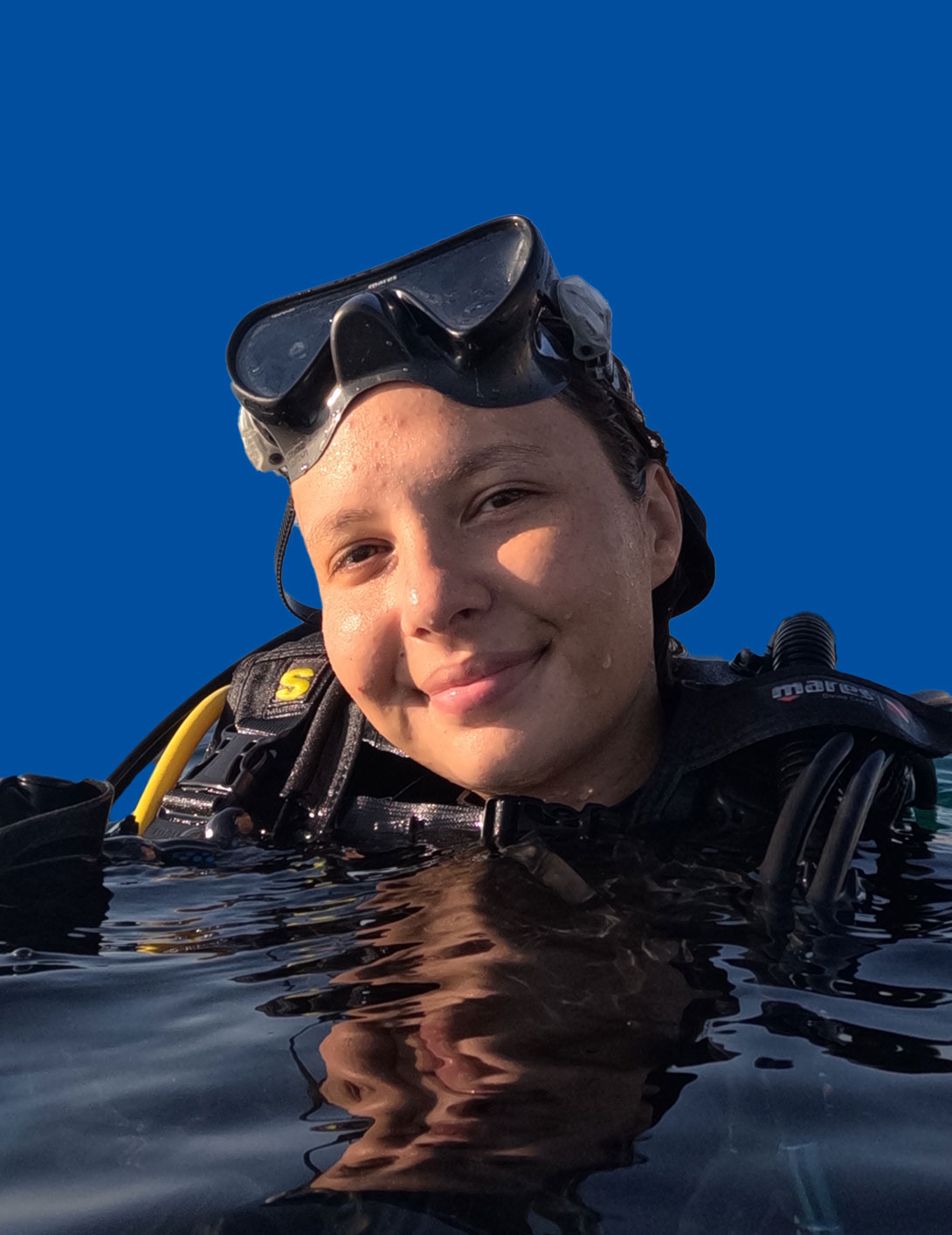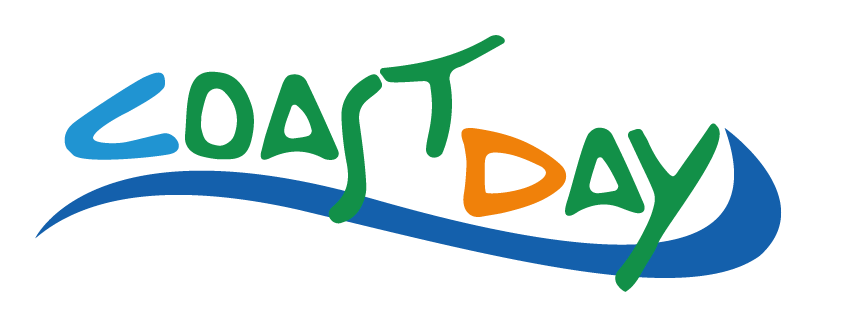
“We need to move beyond institutionalized environmental protection”
In conversation with Laura Khatib
The first thing that strikes you when you meet Laura Khatib is the determined passion that shines in her eyes. It is hard to believe that she had doubts about what she wanted to do with her life when you discover that at 23 she is the youngest person to have created one of Lebanon’s rare NGOs dedicated to marine education and coastal management. Holder of an Advanced Master’s degree in sustainable blue economy, Laura is part of the ECOP Programme (Early Career Ocean Professionals) of the UN Ocean Decade. She is also involved in educational action, particularly through EMSEA (European Marine Science Educators Association). Currently, she is working on the development of Lebanon’s third marine protected area (MPA1 ) in Byblos.
1 Lebanon has 2 declared MPAs (Palm Islands and Tyre Coast), with 19 areas proposed for future designation
A childhood between France and Lebanon
Born to a Lebanese father and a French mother, Laura grew up in Paris but spent all her summers on the Lebanese coast. After high school, she studied general economics. She was already passionate about the Mediterranean Sea. At the same time, she wanted to better understand the world and change things – but she didn’t know how to put the different pieces of the puzzle of her life together. That’s when she decided to take a sabbatical year to go to Lebanon, which she describes as “an incredible experience that allowed me to realize what I could do and what made me happy. I finally felt like I belonged.” After various volunteer experiences, she returned to France to pursue a Master’s degree in Development Economics. Her final-year project became her way forward: in 2021, alongside her partner Samer, a diving instructor, Laura founded Guardians of the Blue, a Byblos-based NGO dedicated to the sea. As she explains, “There were no such organizations in Byblos and I didn’t see myself in an office. In addition to being close to Samer, I needed to do something meaningful for the marine environment – and, even more importantly, for Lebanon. At that moment I told myself that everything is possible, so why not try to make my ultimate dream come true?”
“Doing something for the sea”
It is this need to “do something for the sea” that guides Laura’s daily life. She has not yet managed to turn her passion into a job that gives her financial stability, but she is not giving up. After studying the Lebanese coast in detail and learning about the history and socio-economic development of the Byblos region, Laura was able to develop a foundation of working knowledge. She identified the underwater species in the region, and began to share the results of her research on social media with the aim of increasing what she calls people’s “ocean literacy”. She continues: “We have more than 1,200 subscribers and receive very good feedback. Some people tell me that they thought that Lebanese marine life was dead…”
The association also works with divers from the Xiphias Diving club in Byblos teaching them about invasive species and raising their awareness on how to dive in an environmentally friendly way. More recently, Guardians of the Blue collaborated with the city of St Jean Cap Ferrat in France, on a marine education project called “Our two shores”. Young people from both cities aged 14 to 17 held three workshops on their respective coasts, then shared their findings, particularly focusing on marine pollution. “The young people from Byblos also had the chance to try scuba diving for the first time. They were so amazed and happy, and that feeling makes all our efforts worthwhile,” comments Laura. Laura is committed to developing as much material as possible in Arabic, and wants to produce a documentary on the underwater world of Lebanon: “Our videos have received a lot of attention. We started filming footage of the Lionfish, an invasive species that arrived in the Mediterranean in 2012 and was first spotted in Lebanon. The Lebanese are very attached to the coast and the sea. I’d like to be able to show them the current state of the marine environment, but there are no documentaries on underwater life in Lebanon,” Laura explains.
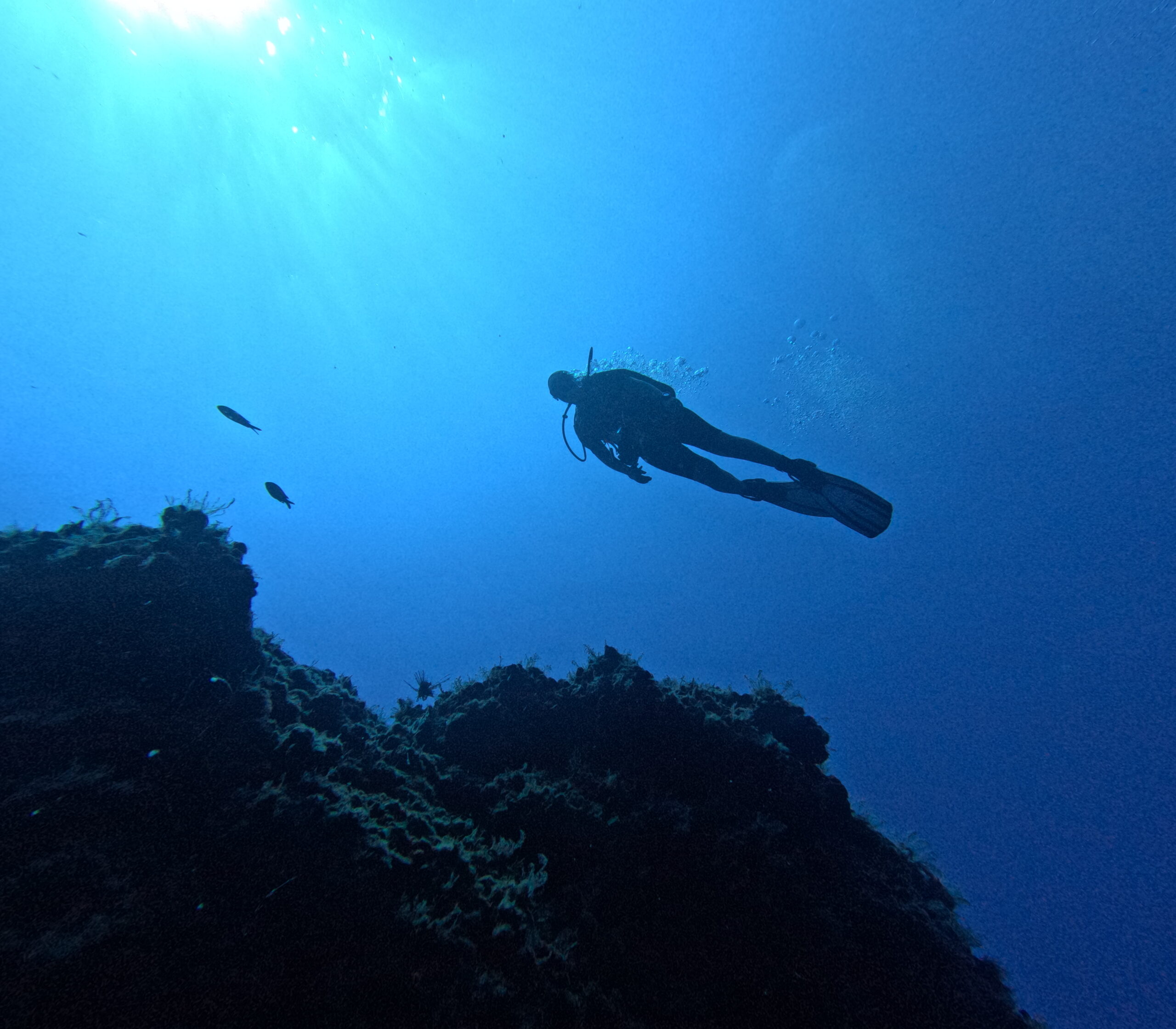
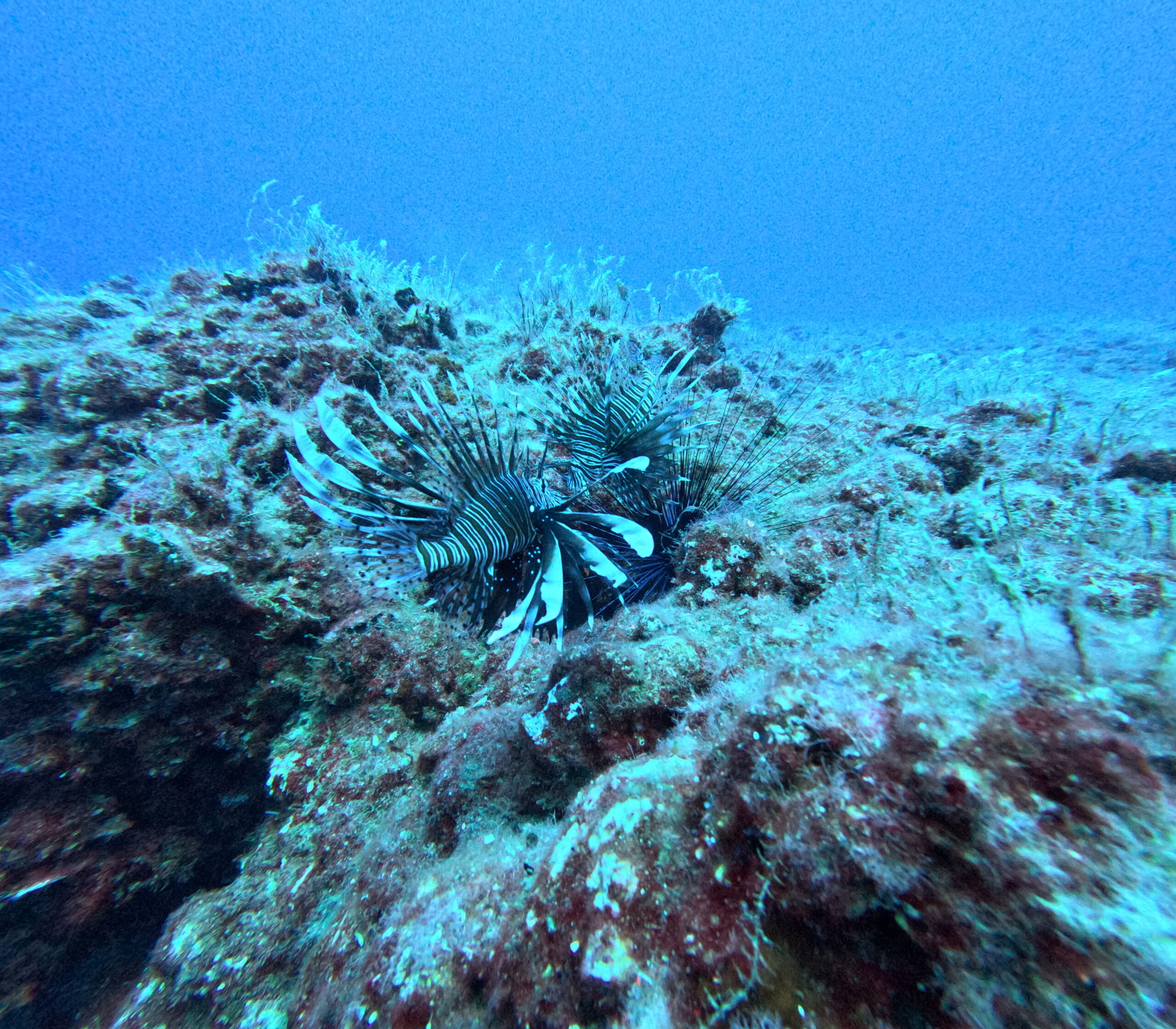
Coastal management in Lebanon suffers from a lack of critical decision-making and resources
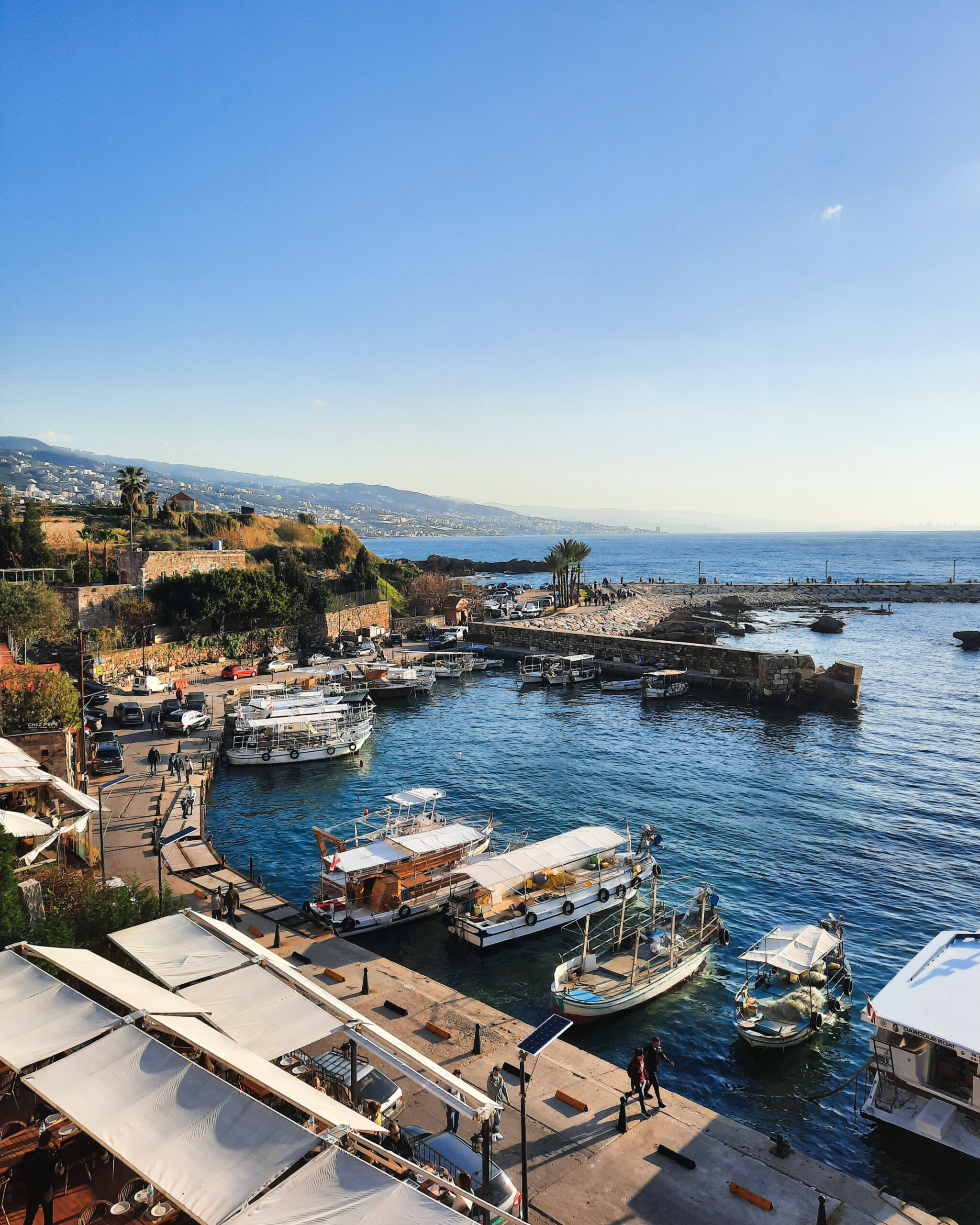
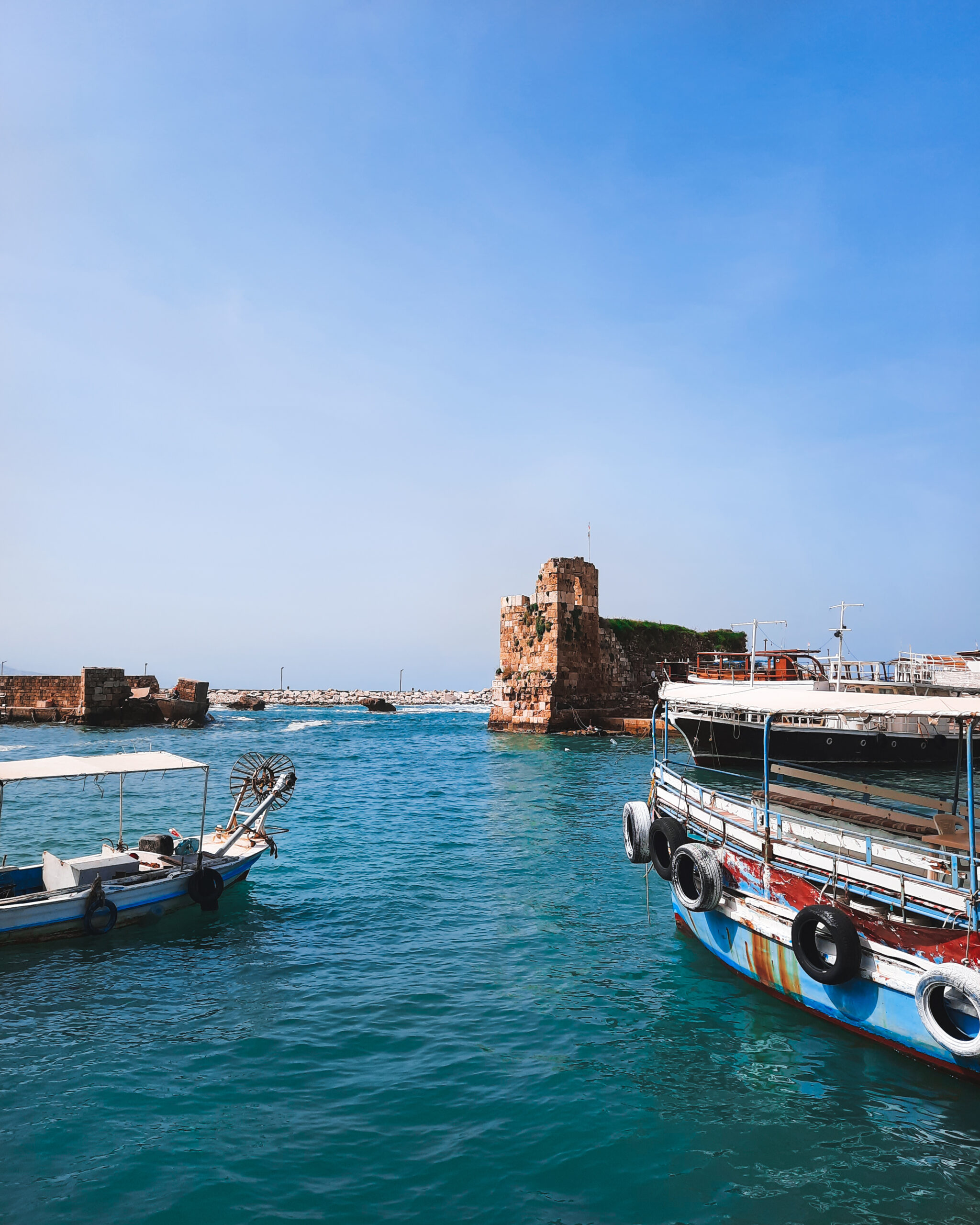
The political crisis that Lebanon is going through is worsening the situation for coastal and marine resources.
Much of the coast has been privatised for the construction of seaside resorts or second homes, which often results in waste-related pressures on marine coastal habitats, and there is no management plan or clear decision-making mechanism in the face of very divergent interests. On the Lebanese coast, where most of the population lives, reconciling the daily needs of the inhabitants with tourism activities and polluting industries is an immense challenge.
Laura is currently involved in the development of a marine protected area project for Byblos. The area is located on the coast bordering the UNESCO World Heritage site, and it is free of any construction. The challenge in this area will be to work with local fishers, tourism operators and archaeologists to ensure the best possible protection for the coast and the maritime zone. Compared to the other main coastal cities of Lebanon, Byblos has relatively lower levels of pollution, and endangered species find refuge in the area, which has interesting possibilities for the development of the marine protected area. However, the proximity of seaside resorts (on sandy beaches, where turtles come to lay their eggs each year), the discharge of sewage, and waste brought in by coastal currents and littering remain significant issues to be addressed. The main problem remains climate change and the increasing water temperatures (18°C minimum in winter, 29°C at a depth of 30m in summer 2024), which favours the spread of tropical species and threatens endemic (and commercial) species. Each challenge will have to be managed in stages and according to available capacities – with a future aspiration of increasing the size of the marine protected area.
Too young to be credible?
Laura often feels that her age leads people to doubt her skills and prevents her from being taken seriously. She adds: “maybe the fact that I’m a woman doesn’t help either”. However, she points out that most of the professionals she has met in her field, both at regional and international levels, are women. “Being a woman allows me to create a balance in our work with Samer, we each bring different things that complement each other, and I think that’s a real strength.”
The woman who inspires her for her work on the sea and coastal management?
Laura picks out Lamya Essemlali, the co-founder and president of Sea Shepherd France, for her commitment to moving beyond institutionalized environmental management while advocating for peaceful actions. For Laura, change will come through emotions and feelings, as we are beginning to see with the work of UNESCO Ocean Literacy, to reconnect humans and the ocean: “Huge development projects have shown their limits. When we think about the change we all want and need, it is so complex, and it must come from the heart, not in some superficial ‘Care Bear’ flower power mode, but with a real and deep connection between humans and their environment.”
Laura’s dream for the Mediterranean coasts
Laura dreams above all of a Mediterranean at peace, especially on the coast where she lives: “We can’t achieve anything without peace and if we don’t have stability and a more equitable sharing of wealth. And this must include the east and south of the Mediterranean, which are still too often forgotten.” She would like the Mediterranean to be considered more as a whole so that everyone can be enriched by everything that brings us together and unites us. Laura concludes: “The sea doesn’t care about borders.”
Written by Chantal Menard for PAP/RAC in the framework of the GEF MedProgramme & UNEP/MAP celebration of Coast Day 2024
Editorial notes
To inform the Lebanese population on the value and fragility of their coast, PAP/RAC and the Lebanese government have developed the Lebanese Coastal Information Platform under the GEF-funded MEDProgramme’s Child Project 2.1. This platform serves as a repository for key information on Lebanon’s coastal zone and will also feature the draft National ICZM Strategy and draft ICZM Law for public consultation.
To learn more about Lebanon’s marine protected areas: The underwater clean-ups organized by Guardians of The Blue are part of the UNESCO Green Citizens initiative.

